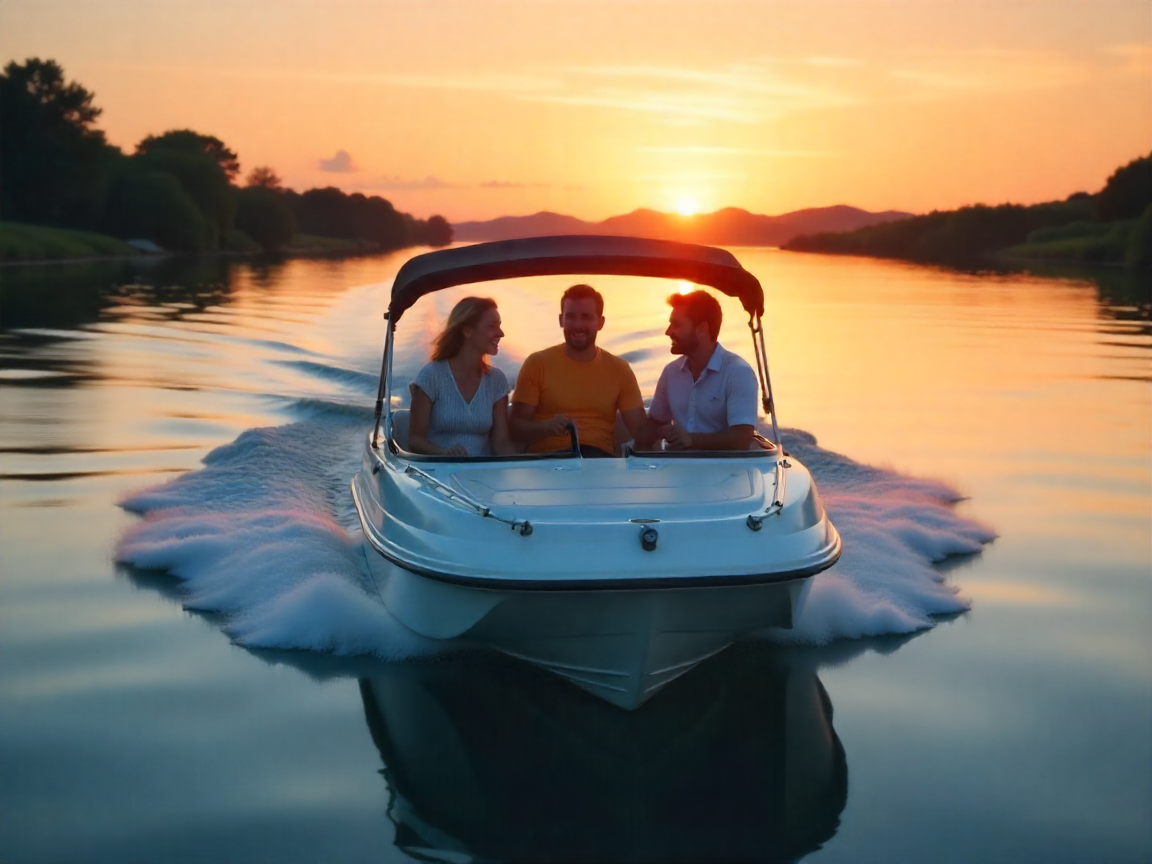Prehľad pretekov Monaco Energy Boat Challenge 2025
Dvanásty ročník Monaco Energy Boat Challenge (MEBC) sa konal od 2. do 6. júla a predstavil významný pokrok v technológiách pohonu iných ako fosílne palivá. Toto podujatie združilo študentov univerzít, výrobcov elektrických lodí a odborníkov z odvetvia s cieľom preskúmať súčasnosť a budúcnosť e-lodí.
MEBC sa vyznačuje svojím jedinečným formátom, ktorý kombinuje vzdelávacie iniciatívy, napínavé preteky a diskusie v rámci odvetvia. S účasťou viac ako 1 000 študentov zo 42 inštitúcií z 20 krajín ponúkla výzva živú platformu pre inovácie a spoluprácu v oblasti udržateľnej plavby.
Pretekárske triedy na Challenge
Štyri odlišné pretekárske triedy poskytujú škálu súťažných príležitostí pre účastníkov:
- Energetická trieda: Obmedzené na univerzitné tímy, ktoré propagujú inovatívny dizajn v regulačných rámcoch zakazujúcich fosílne palivá.
- AI Trieda: Zamerané na výrobu lodí, ktoré využívajú umelú inteligenciu na navigáciu a prevádzkovú efektivitu.
- Trieda SeaLab: Zamerané na skúmanie technológií pohonu novej generácie, vrátane vodíkových systémov a batériových elektrických systémov.
- Trieda Open Sea: Súťažiaci musia využívať člny, ktoré sú komerčne dostupné, čím sa urýchľuje autentickosť v trvalo udržateľnom člnkovaní.
Konkurenti v Energetickej Triede
V rámci Energetickej triedy majú univerzitné tímy za úlohu postaviť jednomodelové katamarány, ktoré poskytuje Yacht Club de Monaco. Každý tím si svoje plavidlo jedinečným spôsobom prispôsobuje, vylepšuje pohonný a riadiaci systém a zároveň dodržiava prísne hmotnostné predpisy. Prevažujúce nadšenie medzi účastníkmi, pochádzajúcimi z rôznych kútov sveta, prispieva k energickej atmosfére v depách.
Tímy preukázali odhodlanie a inováciu na každom kroku procesu, pričom počas rôznych pretekov bolo vytvorených mnoho rekordov. Toto prostredie katalyzovalo nielen ostrú súťaž, ale aj vzdelávacie výmeny medzi študentmi a mentormi zapojenými do technických prezentácií a diskusií.
Preteky v triede Energy
Súťažiaci sa zúčastnili štyroch hlavných pretekov: Rýchlostné, Slalom, Vytrvalostné a Majstrovstvá. Každé preteky merajú rôzne schopnosti:
- Rýchlostné preteky: Časovka pozdĺž pobrežia za prístavom.
- Slalom: Skúška rýchlosti spojená s manévrovateľnosťou v časovo obmedzenom podujatí.
- Endurance: Zamerané na absolvovanie čo najväčšieho počtu kilometrových kôl v priebehu troch hodín.
- Majstrovské preteky: Vyraďovacia súťaž odohrávajúca sa v hraniciach prístavu, ktorá si vyžaduje výnimočnú kontrolu a rýchlosť.
Pozoruhodné inovácie
Tím Argonauts z Univerzity v Bologni, známy ako UniBoAT, dosiahol pozoruhodný úspech, keď vyhral všetky štyri preteky v triede Energy. Ich inovatívne konštrukčné schopnosti stelesňuje vlastný elektrický prívesný motor vyvinutý tímom, ktorý vykazuje výrazný pokrok v účinnosti a výkone. Motor je vybavený protibežnou vrtuľou, ktorá pracuje tak, aby ťahala plavidlo a znižovala turbulencie, čo prispieva k pôsobivému zvýšeniu účinnosti až o 16%.
Medzi ďalšími inovatívnymi účastníkmi zaujal tím Hydrogadz z Paríža, ktorý vytvoril toroidálny lodný skrutku zvyšujúcu účinnosť, najmä pri zatáčaní. Ich kreatívny dizajn nielenže zlepšuje výkonnostné metriky, ale stelesňuje aj záväzok k udržateľnosti, čím ukazuje, ako smerujú pokročilé technológie k ekologickejšej budúcnosti lodnej dopravy.
Budúcnosť pohonnej technológie: Trieda SeaLab
Trieda SeaLab sa ukázala ako súčasná verzia triedy Energy, ktorá povzbudzuje študentské a komerčné tímy, aby sa ponorili do životaschopných systémov pohonu, ktoré ešte nie sú plne komercializované. Červená vlna z univerzity v Bologni si zabezpečila hlavnú cenu, čím zdôraznila zameranie výzvy na udržateľné jachtárske technológie.
Táto trieda tiež predstavovala viaceré lode na vodíkový pohon od tímov z celej Európy, ktoré ďalej skúmali potenciál vodíka ako udržateľného zdroja energie pre námorné aplikácie. Ich inovatívny prístup znamená monumentálny posun smerom k ekologickému povedomiu v jachtárskom priemysle.
Úloha vodíka v modernom lodiarstve
Zavedenie systémov poháňaných vodíkom na MEBC 2025 zdôrazňuje prelomový moment pre komunitu vodákov. Tieto technológie môžu výrazne rozšíriť dojazd elektrických lodí, pričom využívajú čisté zdroje energie, ktoré sú v súlade s globálnymi cieľmi udržateľnosti.
Dhamma Blue, denná loď poháňaná vodíkom, predviedla svoje schopnosti a ukázala spojenie obnoviteľných zdrojov energie s najmodernejším dizajnom. Tento rastúci trend sa dobre zhoduje s ambíciami nadšencov plachtenia, ktorí si cenia výkon bez toho, aby robili kompromisy v oblasti environmentálnej zodpovednosti.
AI trieda: Navigácia v budúcnosti
Úvodná trieda AI na MEBC sa zameriava na integráciu pokročilej umelej inteligencie do systémov navigácie lodí. Absencia štandardných komponentov vyzýva konkurentov k ďalším inováciám. Táto trieda otvára okno do toho, ako by technológie AI mohli zrevolucionizovať námorné operácie – presahujú rekrečné plachtenie do komerčnej lodnej dopravy.
Hoci pohľad na člny manévrujúce v stiesnených priestoroch nemusí osloviť tradičných fanúšikov pretekov, dôsledky takýchto technológií sľubujú zvýšenie bezpečnosti a efektívnosti v celom lodnom spektre, od charterových lodí až po superjachty.
Hlavné črty triedy Open Sea
Trieda Open Sea spojila popredných výrobcov elektrických pohonov a demonštrovala potenciál rýchlosti v súčasnom lodiarstve. Účastníci pretekali dynamickým prostredím, čo predstavilo zdatnosť vysokovýkonných plavidiel navrhnutých pre maximálnu efektivitu a rýchlosť.
Najmä Stefan Frauscher viedol snahu o vytvorenie nového rýchlostného rekordu MEBC s Frauscher X Porsche 850 Fantom Air, ktorá dosiahla takmer 50 uzlov. Tento vzrušujúci výkon uchvacuje jachtárske komunity a posúva hranice toho, čo moderný elektrický pohon dokáže dosiahnuť.
Key Takeaways
Inovácie predstavené na MEBC 2025 poukazujú na vzrušujúcu budúcnosť pre nadšencov vodných športov. Technologický pokrok v oblasti elektrických a vodíkových pohonných systémov ilustruje odhodlanie odvetvia k udržateľnosti a zároveň zlepšuje výkonové parametre. Vďaka spoločnému úsiliu o riešenia čistej energie to slúži nielen na obohatenie pretekárskej kultúry, ale aj širšej sféry rekreačných námorných aktivít.
Ako sa svet plachtenia a člnkovania vyvíja, GetBoat.com stojí v popredí a ponúka jedinečné príležitosti na preskúmanie rôznych plavidiel prispôsobených každej preferencii. Platforma zabezpečuje transparentnosť a poskytuje komplexné informácie o špecifikáciách plavidiel. Teraz, keď plánujete svoju ďalšiu plavbu po vode, nezabudnite, že plachtenie otvára nielen trasy cez oceán, ale aj cesty do pulzujúcich destinácií. Ak uvažujete o prenájme lode, každý záliv a zátoka čaká na objavenie – rovnako ako miestna kuchyňa a bohatá kultúra každého jedinečného regiónu. Preskúmajte tieto dobrodružstvá s GetBoat.com.
Na záver, trajektória e-lodí je pripravená na významnú dynamiku, ktorá ovplyvňuje život na vode, pretože nadšenci hľadajú ekologické alternatívy bez toho, aby obetovali vzrušenie alebo dobrodružstvo. Plánovanie je kľúčové a využívanie platforiem ako GetBoat môže zabezpečiť najlepšie zážitky na mori, keďže prijímame nový vek lodí.

 E-Boating Innovations Accelerate at MEBC 2025">
E-Boating Innovations Accelerate at MEBC 2025">
